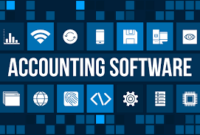Understanding QuickBooks Developer: A Comprehensive Guide
1. What is QuickBooks?
1.1 Overview of QuickBooks Software
QuickBooks is a widely-used accounting software developed by Intuit, designed to help businesses manage their finances efficiently. It offers a range of features including invoicing, payroll management, expense tracking, and financial reporting. QuickBooks is available in various versions, such as QuickBooks Online, QuickBooks Desktop, and QuickBooks Self-Employed, catering to different types of users—from freelancers to large enterprises.
One of the primary advantages of QuickBooks is its user-friendly interface, which simplifies accounting processes for users who may not have extensive financial knowledge. The software allows users to access their financial data from anywhere, particularly with the cloud-based QuickBooks Online, making it a popular choice among modern businesses.
1.2 Different Versions of QuickBooks
Understanding the different versions of QuickBooks is crucial for businesses to choose the right fit for their needs. Here’s a brief overview of the available versions:
- QuickBooks Online: A cloud-based solution that allows users to manage their accounts from any device with internet access. It offers various subscription plans, catering to small and growing businesses.
- QuickBooks Desktop: A traditional software that needs to be installed on a computer. It provides powerful features and is ideal for businesses that prefer working offline.
- QuickBooks Self-Employed: Designed for freelancers and independent contractors, this version simplifies tax deductions and helps track income and expenses.
1.3 Importance of QuickBooks for Businesses
QuickBooks plays a significant role in the operational efficiency of businesses. Here are some reasons why businesses rely on QuickBooks:
- Time-Saving: Automating tasks such as invoicing, payroll, and financial reporting saves time, allowing business owners to focus on core activities.
- Accuracy: With automated calculations, QuickBooks minimizes human errors in accounting, ensuring that financial records are accurate and reliable.
- Financial Insights: The software provides detailed financial reports that help businesses understand their financial health and make informed decisions.
- Scalability: As businesses grow, QuickBooks can scale with them, offering advanced features and integrations as needed.
In conclusion, QuickBooks is more than just accounting software; it’s a vital tool that enhances productivity and financial management. By providing solutions that cater to various business needs, QuickBooks has established itself as a leader in the accounting software market.
2. What is a QuickBooks Developer?
2.1 Definition of QuickBooks Developer
A QuickBooks Developer is a professional who specializes in creating and customizing applications that integrate with QuickBooks software. These developers use various programming languages and tools to enhance QuickBooks’ functionalities, allowing businesses to tailor the software to meet their unique requirements. QuickBooks Developers can work as freelancers, part of a development team, or within a company that offers software solutions involving QuickBooks.
2.2 Skills Required for a QuickBooks Developer
To become a successful QuickBooks Developer, certain skills and knowledge are essential:
- Programming Languages: Proficiency in languages such as Java, C#, and PHP is critical for building applications that integrate with QuickBooks.
- API Knowledge: Familiarity with the QuickBooks API (Application Programming Interface) is crucial, as developers use it to connect applications with QuickBooks software.
- Understanding of Accounting Principles: A solid grasp of basic accounting principles helps developers create solutions that align with financial practices.
- Problem-Solving Skills: Developers must be adept at troubleshooting issues and finding innovative solutions to enhance software functionality.
- Attention to Detail: Given the financial nature of QuickBooks, developers must ensure accuracy in their code to prevent costly errors.
2.3 Role of a QuickBooks Developer
The role of a QuickBooks Developer can vary based on the needs of a business but typically includes the following responsibilities:
- Application Development: Building custom applications or add-ons that improve the efficiency of QuickBooks processes.
- Integration Services: Creating solutions that connect QuickBooks with other business applications, such as CRM systems, e-commerce platforms, or payment gateways.
- Support and Maintenance: Providing ongoing support and maintenance for developed applications to ensure they function correctly with updates to QuickBooks.
- Consultation: Advising businesses on the best practices for utilizing QuickBooks and how custom solutions can benefit their operations.
2.4 The Importance of Hiring a QuickBooks Developer
Hiring a QuickBooks Developer can provide businesses with several advantages:
- Customization: Developers can tailor QuickBooks to fit specific business processes, making it more effective for individual needs.
- Increased Efficiency: Custom applications can automate repetitive tasks, freeing up time for employees to focus on more strategic activities.
- Enhanced Reporting: A developer can create specialized reports that provide deeper insights into financial data, helping businesses make informed decisions.
In summary, a QuickBooks Developer is an integral part of maximizing the potential of QuickBooks software. By combining technical skills with an understanding of business needs, they enable companies to enhance their accounting processes and achieve better financial outcomes.



